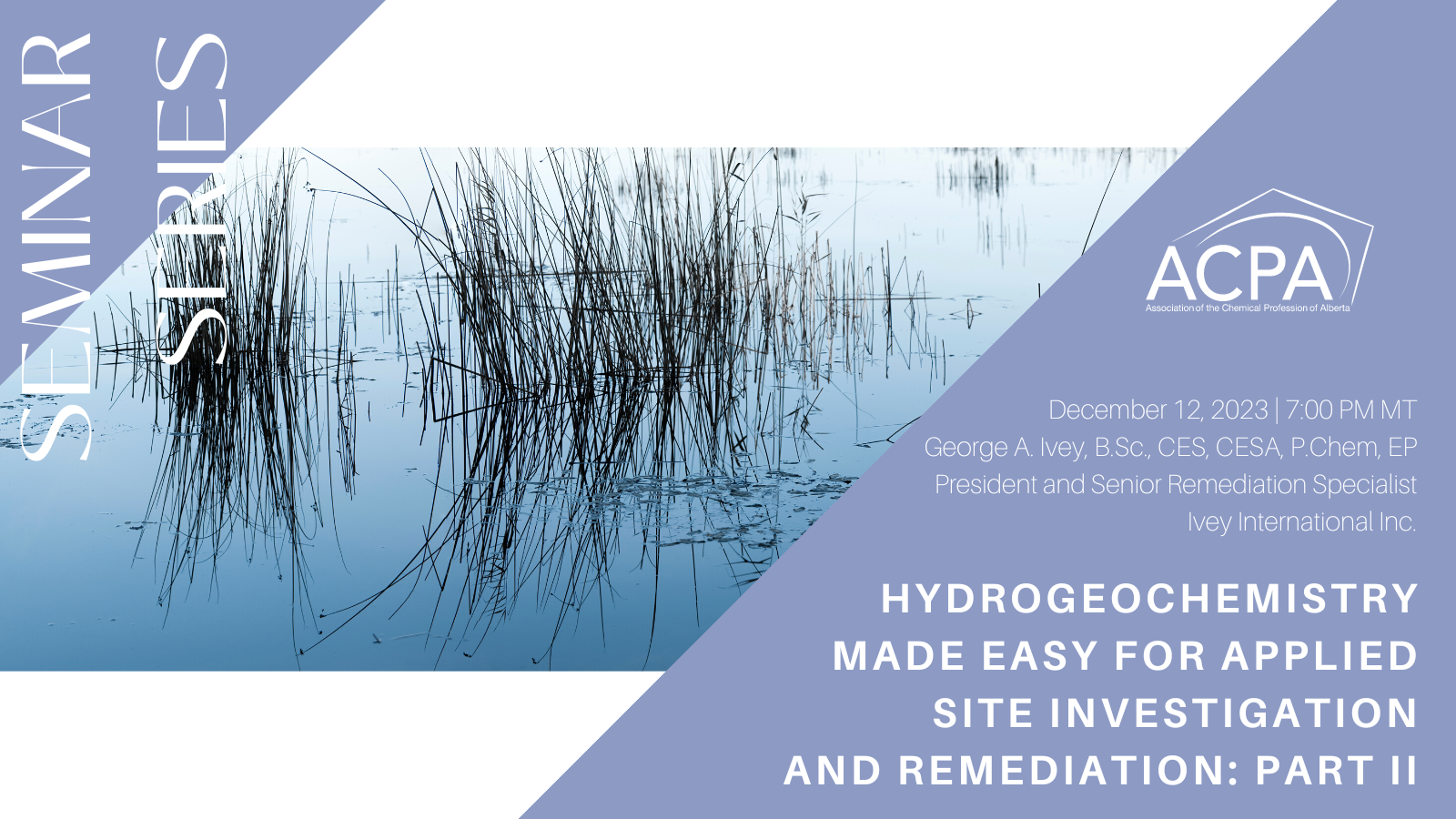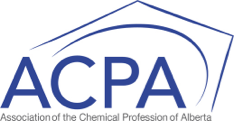ACPA Seminar Series: Hydrogeochemistry Made Easy for Applied Site Investigation and Remediation: Part II
| Starts | 2023-12-12 18:45 |
|---|---|
| Ends | 2023-12-12 20:00 |
| Location | Virtual Event |
| Website | Register Today |

Welcome to the ACPA Seminar Series, a monthly webinar series including various topics of interest related to advancing the Chemical Profession in Alberta. For the next seminar in this series, we are happy to introduce Bud Ivey, B.Sc., CES, CESA, P.Chem, EP, President and Senior Remediation Specialist Ivey International Inc. for 'Hydrogeochemistry Made Easy for Applied Site Investigation and Remediation: Part II' on December 12, 2023. Each seminar will be eligible for 1 PDC credit.
The seminar will present an easy to comprehend, visually driven model for understanding the technical aspects of hydro-geo-chemical contaminant behavior as this pertains to conceptual site models, site investigation of vapor intrusion, soil, bedrock and
groundwater to improving in situ and ex situ site remediation strategies.
Attendees will b e introduced to a new and easy to use set of hydrogeological and chemical (Hydro-Geo-Chemical) principles to better understand and predict vapor, soil and groundwater contaminant behavior on contaminated sites. This is achieved through
a visually driven and interactive hands-on presentation format in which attendees learn: water is not simple H2O but a cluster of water molecules, an easy rule to predict the solubility of all contaminants, the simple cause of contaminant sorption (i.e., absorption
and adsorption), that soil textures and forest density models have much in common to understand contaminant movement (transmissivity) in soil, bedrock and groundwater hydrogeological settings, and how these understandings can aid practitioners to
undertake better site investigations and remediation action plans.
Even attendees with limited chemistry, microbiology, geology and/or hydrogeology experience will learn a new set of applied principles to more easily predict the behavior of contaminants in soil, fractured bedrock, and groundwater regimes, including water
solubility, sorption potential, and how to potentially improve their physical, biological and/or chemical ‘availability’ for in situ or ex situ remediation methods.
The seminar will challenge conventional understandings (models) of what water and organic contaminants are, and provide three (3) simple tools to predict their behavior within soil, bedrock and groundwater environments. In doing so, this simplifies many of the highly technical contaminant hydrogeology principles by allowing attendees a better understanding of why some contaminants dissolve in water, while others do not, why some absorb or adsorb to soil, while others do not, why some move more quickly than
others, and why some contaminants express limited “availability” for remediation, while others do not.
Attendees should leave the seminar with an applied ability to better predict contaminant behavior as it affects environmental site investigation and remediation, to realize ongoing improvements as practitioners.
Agenda
6:45 - 6:59 PM MT - Networking
7:00 - 8:00 PM MT - Presentation and Q&A
Speaker
Bud Ivey, B.Sc., CES, CESA, P.Chem, EP, President and Senior Remediation Specialist Ivey International Inc.
.jpg)
George (Bud) Ivey, is the President and Senior Remediation Specialist with Ivey International Inc. He is an environmental professional with over thirty years of international assessment and remediation experience.
He has worked on greater than 3000 environmental remediation projects, which have taken him to over 60 countries globally. He has more than 20 international patents and trademarks, and is the recipient of several international environmental awards. His educational background includes: Synthetic-Organic Chemistry, Geological Engineering, and a Master’s in Project Management.
Registration
Admission: FREE
Registration Deadline: December 11th, 2023
After registering, you will receive a confirmation email containing information about joining the meeting.
If you have questions, contact the ACPA office at [email protected].
